Russia gas: what could happen to UK if Russia ends gas exports to Europe? Gas and electric impact explained
This article contains affiliate links. We may earn a small commission on items purchased through this article, but that does not affect our editorial judgement.
and live on Freeview channel 276
The Russia-Ukraine war has entered its sixth month and shows no signs of ending.
President Vladimir Putin’s invasion of his country’s western neighbour has taken a devastating human toll, with millions of refugees fleeing to other European states, and tens of thousands of soldiers and civilians having died in the conflict.
Advertisement
Hide AdAdvertisement
Hide AdThe conflict has also fueled an international inflation crisis given the importance of Russia and Ukraine to global trade across key commodities, like energy, fuel and food.
Energy, in particular, is a resource the Kremlin is using to harm Ukraine’s European allies, given much of the continent is heavily reliant on exports from Russia’s state energy companies.
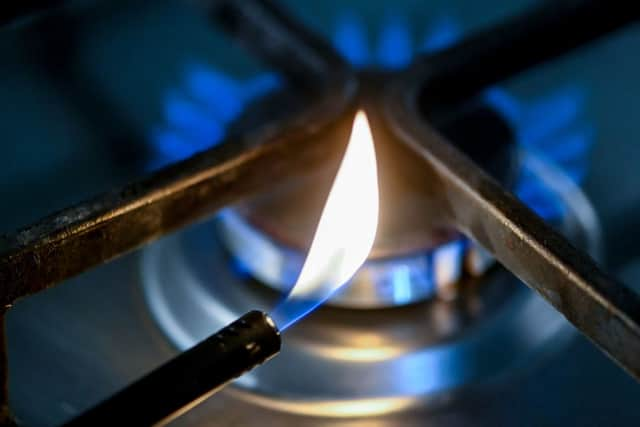

In recent months, several European states have been cut off from Russian energy, including Poland and Bulgaria, while Moscow has drastically reduced gas exports to Germany.
Although the EU has agreed to cut its energy dependency on the pariah state, it remains exposed ahead of this winter.
Advertisement
Hide AdAdvertisement
Hide AdBut what would happen to the UK if Russia opted to cut off gas exports to all of the major European economies?
How reliant is Europe and the UK on Russian gas?
Europe is a big customer for Russian gas.
According to the International Energy Agency (IEA), EU member states imported 155 billion cubic metres of natural gas from Russia in 2021.
This figure amounted to 45% of the bloc’s total gas imports for last year.
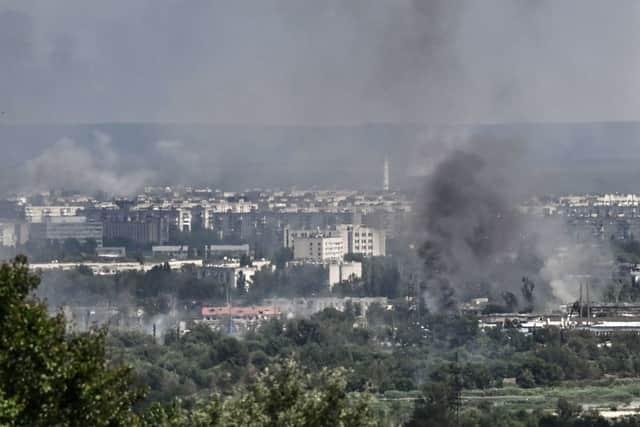

But it was also just under three-quarters of all the gas Russia exported that year.
Advertisement
Hide AdAdvertisement
Hide AdGiven the IEA estimates fuel and gas exports make up 45% of Russia’s federal budget, it shows Vladimir Putin has been somewhat reliant on Europe’s custom.
UK reliance on Russian gas is much lower, sitting at under 5% of its total natural gas imports.
However, the UK (like most countries) is exposed to global markets - so any supply shocks on mainland Europe would be felt here too.
Why is European gas supply in doubt?
Despite Europe having been Russia’s biggest customer over the last decade, the Kremlin has frequently used gas exports as “an economic and political weapon,” according to the IEA’s executive director Fatih Birol.
Advertisement
Hide AdAdvertisement
Hide AdThis situation has worsened in the wake of Russia’s invasion of Ukraine, as Vladimir Putin has retaliated against EU sanctions against Russia and the bloc’s financial and military support to President Volodymyr Zelensky’s country.
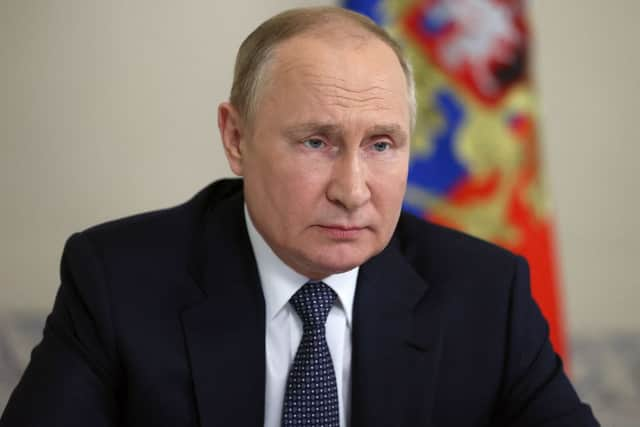

“Nobody is under any illusions anymore. Europe needs to act quickly to be ready to face considerable uncertainty over Russian gas supplies next winter,” Mr Birol said.
This uncertainty has been fueled by Russia lowering supplies to the EU in recent months.
In March, President Putin insisted European energy companies pay for Russian gas in Rubles or face being cut off from supply.
Advertisement
Hide AdAdvertisement
Hide AdSo far Russia has halted supplies to Poland, Bulgaria, Finland, Denmark and the Netherlands for not meeting this demand, while Italian energy firm Eni announced on 17 June it had had half of its supply cut.
Several other European countries, most notably Germany, have had their supplies cut back in recent months - prompting EU members to agree to cut their gas usage over the next three months.
European countries have also been forced to look to other countries for their gas supplies - activity which has driven prices up across the globe.
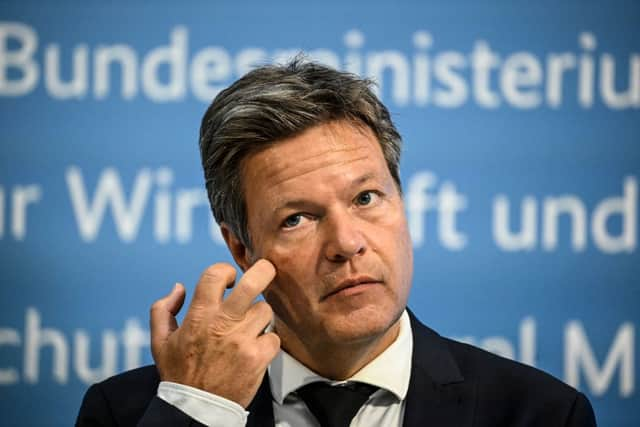

And while the IEA says European dependence on Russian gas has now dropped to around 20%, some countries - Germany in particular - are still reliant on it as they don’t have the infrastructure to import gas from elsewhere.
Advertisement
Hide AdAdvertisement
Hide AdThroughout June and July, supplies coming through the Nord Stream 1 pipeline to Germany have frequently dropped as Russian state energy firm Gazprom carries out what it claims is key maintenance - a claim that’s been rejected by the German government.
At present, flows through the pipeline have fallen to just a fifth of the route’s capacity.
It means the prospect of trouble this winter seems increasingly likely.
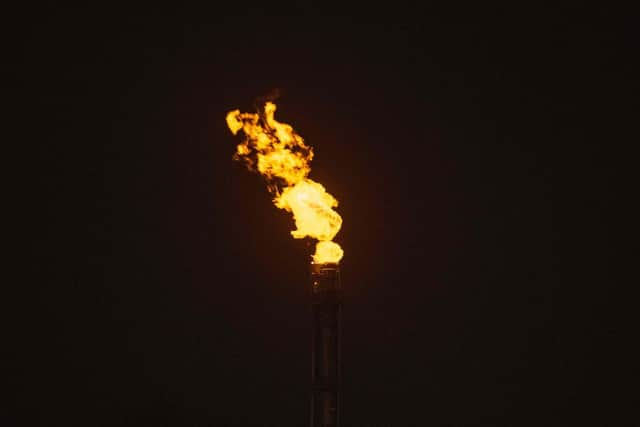

How could a Europe gas supply crisis affect the UK?
If Russia cut Europe off from its gas supplies, the UK could face widespread electricity shortages akin to those seen during the three-day week in December 1973.
Advertisement
Hide AdAdvertisement
Hide AdThis is because gas is the primary way of producing electricity.
A government worst-case scenario seen by newspaper The Times in May warned blackouts could begin in December and last for three months.
These outages would occur both on weekdays and weekends.
Under a slightly less bleak analysis, six million homes could face blackouts for more than a month at the beginning of 2023, as the government would be forced to ration energy at peak times.
These predictions come as there is a belief in Whitehall that Norwegian imports of gas, on which Britain is reliant, could be significantly reduced as a result of higher demand from the EU.
Advertisement
Hide AdAdvertisement
Hide AdA scenario in which the UK loses all of its power is deemed unlikely by public body the Electricity System Operator (ESO).
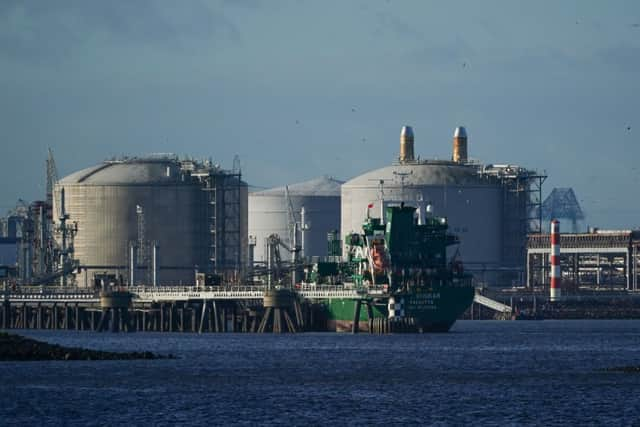

But in its latest forecasts for the coming winter, it has warned there could be “tight” supply period this winter - particularly in early-to-mid December.
“We may need to use our standard operational tools to manage these periods should they occur which, for example, may mean issuing Electricity Margin Notices (a mechanism that lets generators know more electricity is needed),” it said.
“We expect there to be sufficient available capacity to respond to these market signals to meet consumer demand.”
Advertisement
Hide AdAdvertisement
Hide AdThe ESO also said it was “exploring options” to incentivise energy users to reduce their use during peak times.
It warned the knock-on impacts of any halt to European imports of Russian gas could lead to “very high prices” - something analysts have already warned when looking at the Ofgem energy price cap.
At present, the cap is projected to go up 74% to £3,420 in October by consultancy BFY, while fellow consultancy Cornwall Insight forecasts that it could reach £3,245 (64% above the current cap).
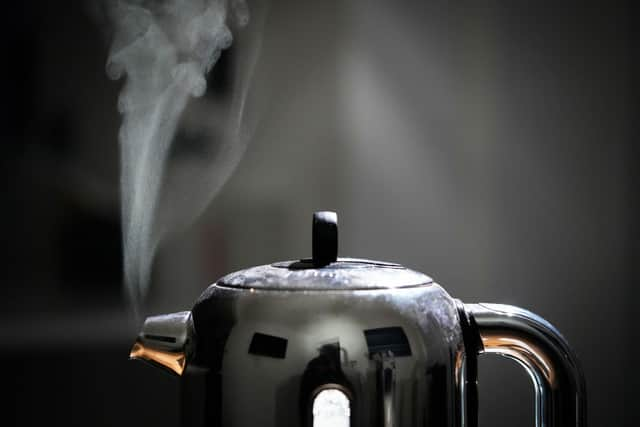

The severity of any UK impact would depend on how severe the winter weather is, and therefore how high demand is.
Advertisement
Hide AdAdvertisement
Hide AdWe saw how disruptive a cold winter can be in the autumn and winter of 2021, when dozens of energy suppliers went bust.
Freezing temperatures in the winter of 2020, as well as reduced Russian gas supplies and high demand from economies recovering from Covid led to major wholesale price increases that smaller energy firms couldn’t cope with.
The UK already has a plan in the event of widespread blackouts.
Formerly known as ‘Black Start’ (because, NationalWorld has been told it would involve the burning of fuels like coal and oil that generate black smoke), but now known as ‘Restoration Services’, it would see back-up generators supply power to critical infrastructure until full power supplies can be restored.
Comment Guidelines
National World encourages reader discussion on our stories. User feedback, insights and back-and-forth exchanges add a rich layer of context to reporting. Please review our Community Guidelines before commenting.
